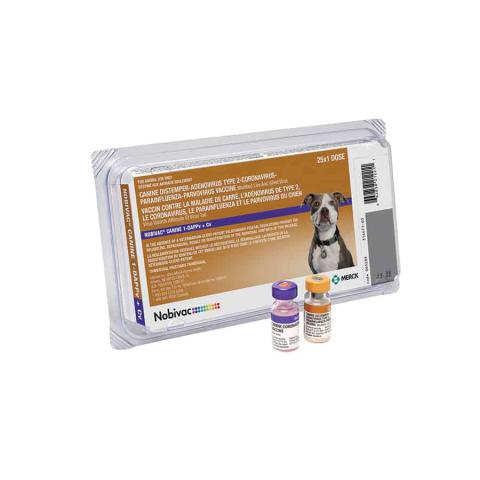
DHPP Dog Vaccine: Protecting Your Pet from Deadly Diseases
Published on October 9 by Olivia
The DHPP vaccine is one of the most important vaccinations for dogs, helping to protect them from several dangerous and potentially fatal diseases. As a core vaccine recommended by veterinarians, it is critical for ensuring your dog’s long-term health. But what exactly does the DHPP vaccine protect against, and why is it so essential?
In this article, we’ll break down the components of the DHPP vaccine, explain the diseases it prevents, the vaccination schedule for puppies and adult dogs, and why keeping your dog’s vaccinations up to date is so important.
What Is the DHPP Vaccine?
The DHPP vaccine is a combination vaccine that protects against four serious viral infections:
- D stands for Distemper
- H stands for Hepatitis (Adenovirus-2)
- P stands for Parvovirus
- P stands for Parainfluenza
These diseases can be life-threatening, especially in young puppies or unvaccinated dogs, and they are highly contagious. Administering the DHPP vaccine is an effective way to prevent outbreaks of these illnesses, some of which can spread rapidly between dogs.
Components of the DHPP Vaccine
Let’s take a closer look at each disease the DHPP vaccine prevents:
1. Canine Distemper
Canine distemper is a highly contagious and often fatal viral disease that affects a dog’s respiratory, gastrointestinal, and nervous systems. It is spread through contact with infected bodily fluids (such as saliva, urine, or feces) or airborne particles from coughing or sneezing dogs.

Symptoms of distemper include:
- Fever
- Coughing
- Vomiting and diarrhea
- Seizures
- Muscle twitching
- Neurological problems, including paralysis
There is no cure for canine distemper, and treatment focuses on supportive care. Vaccination is the most effective way to prevent infection.
2. Hepatitis (Adenovirus-2)
In the context of the DHPP vaccine, hepatitis refers to canine adenovirus type 1 (CAV-1), which causes infectious canine hepatitis, a severe viral disease that affects the liver, kidneys, and blood vessels. The vaccine contains the adenovirus type 2 (CAV-2) virus, which also helps protect against CAV-1.
Symptoms of canine hepatitis include:
- Fever
- Lethargy
- Jaundice (yellowing of the skin, gums, or eyes)
- Abdominal pain
- Vomiting and diarrhea
- Seizures (in severe cases)
Canine hepatitis can progress rapidly, and in severe cases, it can be fatal. Vaccination offers protection and reduces the severity of symptoms if exposure occurs.
3. Parvovirus
Canine parvovirus is a highly contagious and deadly viral disease that primarily affects puppies. It attacks the lining of the intestines, leading to severe vomiting, diarrhea (often bloody), and dehydration. Parvovirus spreads easily through contact with infected feces, contaminated surfaces, or infected dogs.
Symptoms of parvovirus include:
- Severe vomiting
- Bloody diarrhea
- Lethargy
- Rapid dehydration
- Loss of appetite
Parvovirus can lead to death within days without prompt and intensive treatment. The DHPP vaccine is crucial for preventing parvovirus, especially in young puppies.
4. Parainfluenza
Canine parainfluenza virus is a highly contagious respiratory virus and a common cause of kennel cough. While parainfluenza is not typically life-threatening, it can lead to serious complications in puppies, senior dogs, or dogs with weakened immune systems.
Symptoms of parainfluenza include:
- Persistent cough
- Sneezing
- Nasal discharge
- Fever
- Lethargy
Parainfluenza often spreads in places where dogs are in close contact, such as kennels, shelters, or dog parks. Vaccination can help reduce the severity and spread of the disease.
DHPP Vaccine Schedule
Vaccinating your dog according to the recommended schedule is crucial for ensuring they are protected from these life-threatening diseases. The schedule for DHPP vaccines typically begins when your dog is a puppy and continues into adulthood.
Puppy DHPP Vaccine Schedule
- First Dose: Puppies typically receive their first DHPP vaccination at 6 to 8 weeks of age.
- Booster Shots: Additional booster shots are given every 3 to 4 weeks until the puppy is 16 weeks old.
- Final Booster: The final DHPP booster is usually administered at 16 to 18 weeks of age.

Adult Dog DHPP Vaccine Schedule
For adult dogs, the DHPP vaccination schedule depends on their previous vaccination history. If your dog has completed the puppy series of vaccines, they will need regular boosters to maintain protection.
- Booster Shots: Adult dogs typically receive a DHPP booster 1 year after completing the initial puppy series and then every 3 years thereafter. Some veterinarians may recommend annual boosters based on your dog’s lifestyle and risk factors.
Why Is the DHPP Vaccine Important?
Vaccinating your dog with the DHPP vaccine is crucial for several reasons:
- Preventing Fatal Diseases: The diseases covered by the DHPP vaccine—distemper, hepatitis, parvovirus, and parainfluenza—are serious and often fatal without vaccination.
- Protecting Other Dogs: These diseases are highly contagious, meaning that unvaccinated dogs can easily spread them to other dogs. Vaccinating your dog helps stop the spread of these viruses, particularly in high-risk areas such as dog parks, shelters, and kennels.
- Cost-Effective: Treating a dog infected with one of these diseases can be expensive and emotionally difficult. Vaccination is a far more cost-effective and safer option for ensuring your dog stays healthy.
- Essential for Puppies: Puppies are particularly vulnerable to diseases like parvovirus and distemper. Early and regular vaccinations ensure that your puppy builds immunity to protect them as they grow.
Possible Side Effects of the DHPP Vaccine
While the DHPP vaccine is generally safe, like all vaccines, it can cause mild side effects in some dogs. These side effects are typically short-lived and not serious.
Common side effects include:
- Mild fever
- Lethargy
- Reduced appetite
- Swelling or soreness at the injection site
In rare cases, dogs may experience an allergic reaction to the vaccine, which can result in more serious symptoms such as facial swelling, vomiting, diarrhea, or difficulty breathing. If you notice any of these symptoms after vaccination, seek veterinary care immediately.
Conclusion
The DHPP vaccine is essential for protecting dogs from four serious and potentially deadly diseases: distemper, hepatitis, parvovirus, and parainfluenza. By following the recommended vaccination schedule and keeping up with booster shots, you can ensure your dog stays healthy and safe. If you have any questions about the DHPP vaccine or your dog’s vaccination schedule, consult your veterinarian to make sure your pet receives the necessary protection.